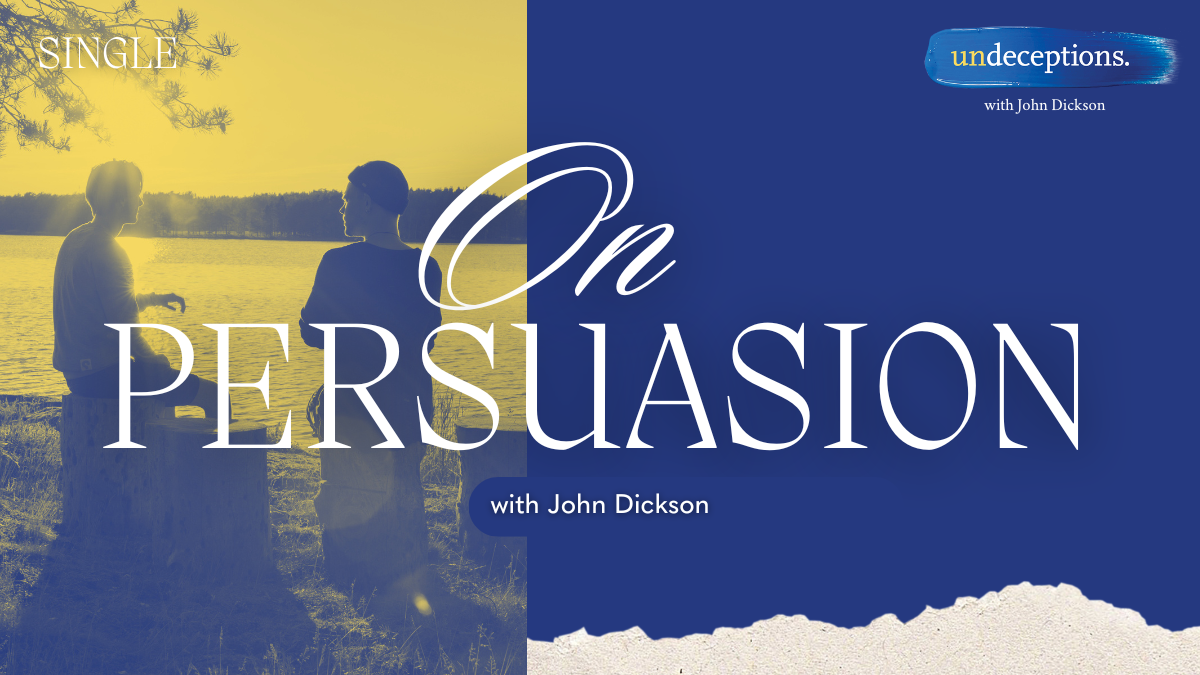A doubter once came to Jesus hoping for healing for his son. And Jesus said, by the way this is in Mark chapter 9, “everything is possible for one who believes,” then the boy’s father replied, “I do believe, help me overcome my unbelief.”
The man is a doubter and I think there are some important things to say about doubt before noticing how Jesus treated this particular doubter. There are different kinds of doubt. Some doubts are neutral, some are problematic, and some are even kind of positive.
In the neutral category I’d place what you might call intellectual doubt. This is when our confidence in something wanes because of what seems like a compelling counter argument. Intellectual doubt isn’t necessarily bad, it’s just an intellectual response to a challenge. Perhaps a really smart friend beats us in an argument. Perhaps we saw some history channel documentary or a Washington Post Christmas article claiming something shocking about the Christian faith. I don’t think we should feel troubled by these kinds of doubts. We should just do what Luke says he did in his research for his gospel. In the opening sentence, he says, “I have carefully investigated everything.” Over the years. I’ve become convinced there is no question you could raise against the Christian faith that hasn’t been comprehensively answered by some nerd, in some book, in some library, somewhere.
Some doubts aren’t so neutral, because some doubts aren’t even intellectual. There’s what you might call moral doubt, this is doubting because we want to live or think contrary to the Christian faith. I’ve met many people over the years who present as having intellectual doubts, but after some self analysis they admit that really they’re just trying to relieve the cognitive dissonance between what Christianity says and what they want to do and think. Instead of doubting themselves and their motives, they doubt Christianity. It might be doubting what the Bible says about sex, because we don’t like what the Bible says about sex. It could just as easily be doubting what Jesus said about money and the poor, because we want to keep our money. The answer to this moral doubt is to learn to doubt our doubts.
There’s a third kind of doubt that emerges from a more positive place. You could call it psychological doubt. It’s a protective trick that our mind plays on us when we’re considering some kind of deeper commitment. It’s a natural psychological mechanism to keep us from risky behaviour. It’s like the cold feet some people get before their wedding day. It’s the doubt I experience every time I hop on a plane. In my head I know the plane’s not going to crash, yet I know the plane’s going to crash. What’s going on there? It’s the mind playing what you might call pass protection. So much hangs on the truth of something, or the stability of the aircraft I flew on just this morning, that I don’t allow myself fully to trust it.
A similar psychological doubt can arise when thinking about deeper commitment to the Christian faith. So much hangs on the truth of Christ. The stakes are so great, our mind says: are you sure, are you really sure? We shouldn’t feel guilty about this kind of doubt. I reckon we should just relax, recognise it for what it is, and then just take the next small step in the right direction.
And this is why we find some tender hearted statements about doubt in the Bible. In a little book in the New Testament called Jude, written by Jesus’ brother Jude, he writes, “be merciful to those who doubt.” Perhaps this is intellectual doubt, perhaps it’s psychological doubt, perhaps the doubts that arise from disappointment or hardship. Whichever way we read that, the idea of being merciful to the doubter is lovely. Christ has mercy on doubters. So should Christians. And so should you on yourself.
And that brings me back to Jesus. True faith shouldn’t be confused with intellectual certainty. I mean, you can be certain of the truth of God and not have Christian faith. True Christian faith isn’t intellectual agreement that something is true, it’s trusting our lives to the one revealed in the gospel. So it’s possible for someone to have no doubts about Christianity and still not have trusted themselves to Christ. Equally, it’s possible for someone to experience doubts and yet have real, genuine faith.
We are not saved or doomed by the fluctuations in our cognitive belief. The man who came to Jesus for the healing of his son cried out in Mark chapter 9, “I do believe help me overcome my unbelief.” And you only have to read the rest of Mark 9 to see that Jesus does what his brother years later would recommend, He was merciful on those who doubt. Of course, Jude picked it up from Jesus, not the other way around, if you know what I mean. Jesus healed that man’s son, even though the man didn’t quite believe it could happen.
So if you’re a doubter, don’t fret. Don’t deny the doubts. Relax. Take a deep breath. Assess what kind of doubt it is. And then say to Christ, “help me overcome my unbelief,” and then see what happens.
By John Dickson
Deconstructing Faith
Want to hear the rest of the episode?
Check out episode 106: “Deconstructing Faith”















































